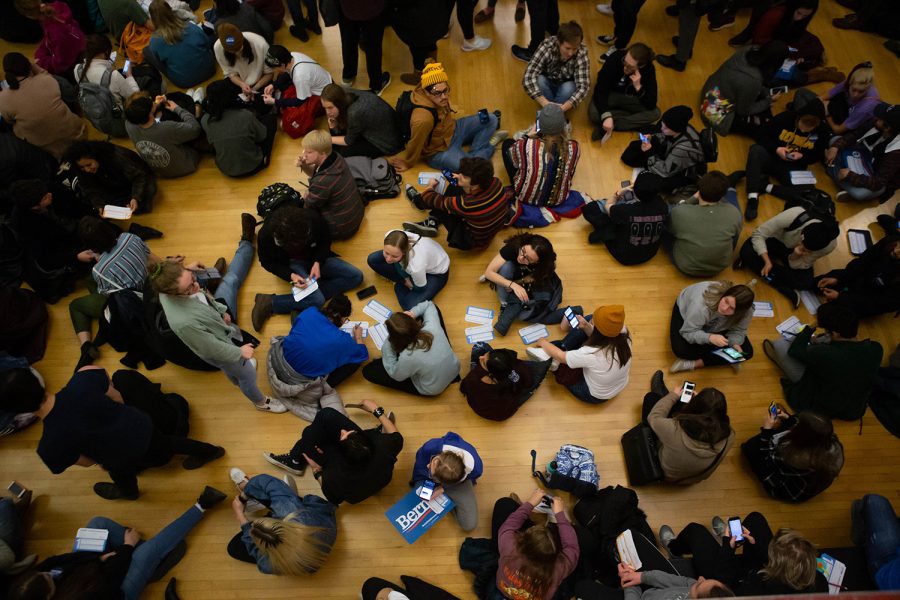After national Democrats stripped the Iowa Democratic Party of its first-in-the-nation caucus status earlier this year, the Iowa Democratic caucuses will look quite a bit different.
Iowa Democrats will now hold in-person caucus meetings on Jan. 15 and send in presidential preference cards via mail until Feb. 19. The results of the caucus will not be revealed until Super Tuesday on March 5.
John Deeth, a volunteer caucus organizer for the Johnson County Democrats, said holding the caucuses on Martin Luther King Jr. Day had led to some backlash in 2004, but the date, which coincides with the Iowa GOP caucuses, was not chosen by the Democrats.
The in-person caucus meeting’s focus is to elect delegates to the county convention. Those delegates will then participate in state and national conventions depending on mail-in ballot results.
Deeth said party leadership came up with the new system after criticism from the Democratic National Committee regarding the amount of time it took and the accessibility of the caucuses.
Iowa Democrats can now request their 2024 caucus mail-in ballots through Feb. 19. All ballots must be back to the state party on March 5.
Caucusgoers can go online at iowademocrats.org to request a Presidential Preference Card. Preference cards will be mailed out Jan. 12, 2024. Registered Democrats are eligible to request a card and participate in the caucus or can register online.
The Daily Iowan: Where and when can Democrats in Iowa caucus for Democratic nominees?
Deeth: The caucus this year is going to be just a business meeting, so if all somebody wants to do is vote for a Democratic presidential candidate, they would not need to attend. We encourage attendance because it’s important to our party organizing, but the presidential voting is going to be conducted by mail.
The Democratic Party is taking requests now. You can request your ballot online, and then they will mail those out beginning on Jan. 12. The caucus meeting will be on Jan. 15.
How will the Johnson County Democratic Caucuses work?
There will be some introductory remarks from an elected official or a member of the party executive board, and then there will be a petition signing for Democratic candidates to get on the ballot.
There will be some various presentations, and then the attendees will break into the individual precincts to get back the actual business.
So what we’ll be doing is electing delegates to a county convention, and those delegates will all be unpledged delegates. There’s no commitment to a presidential candidate; you’re just a delegate to a county convention.
We’ll be electing county committee members, platform committee members, and discussing platforms if people want to do that.
So the next step is the state Democratic Party. There’s a deadline to request a ballot: Feb. 19. The deadline to get the ballots back to the state party is March 5, and on March 5, the state party will release the results.
The delegates will meet at the county convention on March 23, and they will choose delegates to the next levels of convention in proportion to what the mail-in vote was.
The mail-in vote will determine how many district and state convention delegates and how many national convention delegates are elected for each candidate, whether that be president or an uncommitted slate, but people can caucus for whoever they want.
The caucus meeting has nothing to do with the presidential vote.
The state law requires we hold a party-organizing meeting and that we hold that meeting before other states start voting for president.
Why is it important that people participate in the caucuses?
I think the caucuses, even though we’re not voting for president, are still very important because it’s the beginning of the organization process for the November election.
The Democrats are going to need all hands on deck this year for President Biden, for Christina Bohannan for Congress, for our local legislators and courthouse officials … The stakes are very high in this election.
So it’s important to get out on the ground floor, get involved, and get ready to do the work of getting your friends and neighbors out to vote, and the caucuses are a good way to get started on that.



